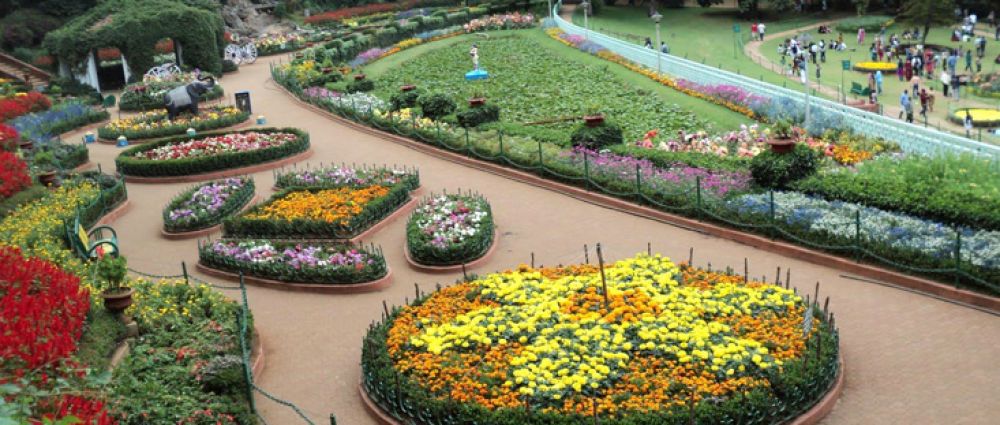

The Ooty Botanical Gardens are a sprawling 22-hectare area in Udhagamandalam, near Coimbatore in the state of Tamil Nadu, India. Established in 1848, the Gardens were laid out in a picturesque fashion by the Marquis of Tweeddale and are maintained by the Tamil Nadu Horticulture Department. With a rich history that spans over 170 years, these gardens have been a significant focal point of tourism in Ooty, also known as the Queen of Hill Stations.
The allure of the Botanical Gardens began during the British Raj when Ooty served as the summer headquarters of the Madras Presidency. British officers and their families would retreat to Ooty to escape the tropical heat of the plains. The foundation of the Gardens was part of a larger intent to create a peaceful retreat that blended natural beauty with carefully designed landscapes.
As tourism evolved, post-independence, Ooty and its Botanical Gardens became a popular destination for domestic travelers looking for a cool climate and natural scenery. The laid out lawns, exotic plants, and a variety of floral species attracted plenty of nature enthusiasts, botanists, and tourists alike.
The annual Ooty Flower Show is a major tourist attraction that has historic roots dating back to the 1800s. This event showcases an extraordinary array of flowers and attracts thousands of visitors, both national and international. The show, usually held in May, displays various exotic and indigenous plants and is a festive occasion for the town of Ooty.
The Botanical Gardens boast a diverse collection of flora including ferns, orchids, and a fossilized tree believed to be over 20 million years old. The Gardens' diverse topography, with lawns, an Italian-style garden layout, and terraced flowerbeds, showcases a range of indigenous and exotic plants. The famed Rose Garden contains more than 2,000 varieties of roses.
In recent years, tourism trends in Ooty have favored more sustainable and eco-friendly practices. Visitors are looking for experiences that are not only enjoyable but also mindful of environmental impact. Ecotourism initiatives, such as guided nature walks and educational tours, have gained momentum in the Botanical Gardens, stressing the importance of conservation and sustainable tourism.
Additionally, digital technology has influenced the way tourists experience attractions. With accessible online platforms and virtual tours, prospective travelers can plan and visualize their trip to the Ooty Botanical Gardens well in advance.
The Ooty Botanical Gardens have been an integral part of Tamil Nadu's tourism heritage for over a century. Their enduring popularity is a testament to their timeless beauty and the concerted efforts to preserve and enhance their appeal to tourists from all over the world. As tourism trends evolve, the Gardens continue to adapt, offering a blend of historical charm with the modern call for sustainability and digital engagement.